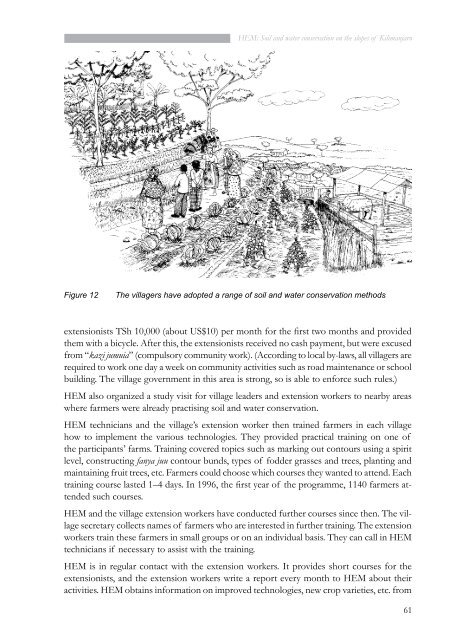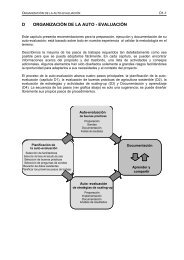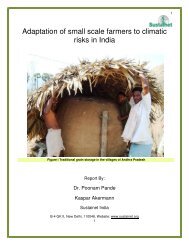cases from tanzania - Sustainet
cases from tanzania - Sustainet
cases from tanzania - Sustainet
You also want an ePaper? Increase the reach of your titles
YUMPU automatically turns print PDFs into web optimized ePapers that Google loves.
HEM: Soil and water conservation on the slopes of Kilimanjaro<br />
Figure 12 The villagers have adopted a range of soil and water conservation methods<br />
extensionists TSh 10,000 (about US$10) per month for the first two months and provided<br />
them with a bicycle. After this, the extensionists received no cash payment, but were excused<br />
<strong>from</strong> “kazi jumuia” (compulsory community work). (According to local by-laws, all villagers are<br />
required to work one day a week on community activities such as road maintenance or school<br />
building. The village government in this area is strong, so is able to enforce such rules.)<br />
HEM also organized a study visit for village leaders and extension workers to nearby areas<br />
where farmers were already practising soil and water conservation.<br />
HEM technicians and the village’s extension worker then trained farmers in each village<br />
how to implement the various technologies. They provided practical training on one of<br />
the participants’ farms. Training covered topics such as marking out contours using a spirit<br />
level, constructing fanya juu contour bunds, types of fodder grasses and trees, planting and<br />
maintaining fruit trees, etc. Farmers could choose which courses they wanted to attend. Each<br />
training course lasted 1–4 days. In 1996, the first year of the programme, 1140 farmers attended<br />
such courses.<br />
HEM and the village extension workers have conducted further courses since then. The village<br />
secretary collects names of farmers who are interested in further training. The extension<br />
workers train these farmers in small groups or on an individual basis. They can call in HEM<br />
technicians if necessary to assist with the training.<br />
HEM is in regular contact with the extension workers. It provides short courses for the<br />
extensionists, and the extension workers write a report every month to HEM about their<br />
activities. HEM obtains information on improved technologies, new crop varieties, etc. <strong>from</strong><br />
61




